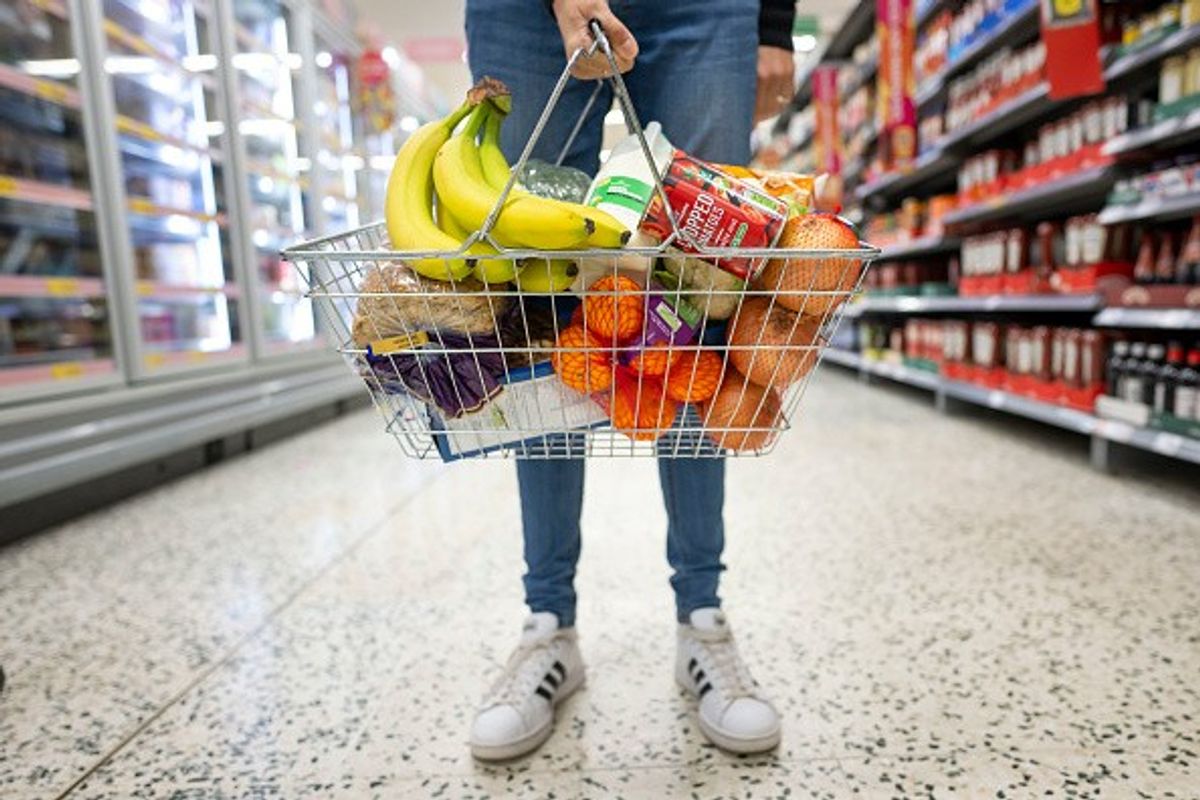Sales of fresh meat and poultry have soared as shoppers cut back on takeaways and eating out – but they are increasingly shunning so-called ‘meat-free’ options.
NIQ data released today (14) shows that over the last 12 months, British consumers did more scratch cooking, with sales of fresh meat (+£481.3m), fresh fruit (+£463.5m), fresh vegetables (+£374m), fresh salad (+£285.3m) and fresh poultry (+£247.6m) all among the top 10 fastest growing categories.
In a further sign that more meals are being freshly prepared, dried herbs and spices enjoyed the biggest volume percentage gains out of all the 127 categories in this year’s report.
Sales of beef (+£242.1m) and chicken (+£212m) were among the most popular and fastest growing products in British supermarket baskets in 2024, but lamb and duck also enjoyed strong growth.
But the meat-free category (-£37.1m) continues to decline, dipping below £500m in value. Market leader Quorn (-£16.5m) was the biggest casualty, although some brands are still in growth.
Inflation
The NIQ data also shows that UK shoppers have cut back on some dairy products, with milk (-£223.3m) and butter, spreads & margarine (-£63.7m) among the fastest falling categories, as the massive inflation in these categories over the past two years has taken its toll.
With inflation now largely under control in grocery retail, the reintroduction of branded promotions has helped stem the slump in overall branded volumes. But inflation is still having a material impact on the market.
A less obvious casualty is chocolate confectionery (+£532.6m), which actually recorded the biggest increase in value sales across the Top Products Survey. But volumes fell and most of the value gains reflect price hikes linked to soaring cocoa commodity prices, as cocoa beans futures reached an all-time high of $12,000/tonne earlier this year.
It was a similar story for Cadbury Dairy Milk (+£72.4m), where the leading chocolate brand’s strong value sales again masked lower volumes.
The cost of living crisis is likely also to blame for the decline in sales in many alcoholic drinks categories, although the government’s duty hikes have also played a part. Spirits (-£52.6m), sparkling wine (-£19.9m) and champagne (-£12.1m) all fared badly. And alcohol brands accounted for 50% of the top 10 fastest falling products, including lager brands Foster’s (-£34m) and Carling (-£22.2m) as well as the UK’s leading gin brand Gordon’s (-£21.4m).
Sales of wine (+£242.4m) performed better, although Hardys (-£41m), and Blossom Hill (-£22.7m) were some of the biggest losers overall in terms of value sales.
It was a different story in energy drinks.
Monster (+£103.6m) and Red Bull (+£84.7m) were the strongest performing brands in terms of value sales. But after enjoying stratospheric growth, following its social-media fuelled launch, sales of Prime (-£63.1m) came crashing down to earth.
The biggest overall casualty, however, was disposable vaping brand ElfBar (-£284m), amid signs that the vaping category may have passed its peak ahead of duty hikes and increased legislative restrictions. On the other hand the overall fastest growing product was SKE Crystal Bar (+£240.8m) which shows how prone to fast-moving fads the vaping category is.
The fortunes of the wrapped bread market were also highly variable. Hovis (-£37.7m) experienced the biggest downturn in sales of any food brand; while Warburtons (+£57.6m) was the biggest food brand to be in value and volume growth.
Fastest-growing grocery categories of 2024
Category | Actual growth (£ millions) in value sales | |
1 | Chocolate | £532.6m |
2 | Fresh Meat | £481.3m |
3 | Fresh Fruit | £463.5m |
4 | Fresh Veg | £374m |
5 | Fresh Salad | £285.3m |
6 | Crisps & Snacks | £247.6m |
7 | Fresh Poultry | £247.6m |
8 | Eggs | £246m |
9 | Light Wine | £242.4m |
10 | Sweet Biscuits | £238.9m |
Fastest-falling grocery categories of 2024
Category | Actual decline (£ millions) in value sales | |
1 | Milk | -£223.3m |
2 | Toilet Tissue | -£106.2m |
3 | Butter, Spreads & Marge | -£63.7m |
4 | Spirits | -£52.6m |
5 | Meat-Free | -£37.1m |
6 | Frozen Fish | -£21.3m |
7 | Sparkling Wine | -£19.9m |
8 | Kitchen Roll | -£12.9m |
9 | Champagne | -£12.1m |
10 | Dry Pasta | -£6.8m |
Rachel White, Managing Director UK & Ireland at NIQ, said, “Shopping habits have changed once again. What we are seeing in this year’s survey is a return to scratch cooking and the preparation of fresh meals.
"Perhaps this is a nod to trends in healthier living – with consumers taking the time to prepare meals together, sourcing fresh and healthy products and consuming less alcohol – but it’s also a product of the cost of living crisis, as shoppers cut back on takeaways and eating out to save money.”


